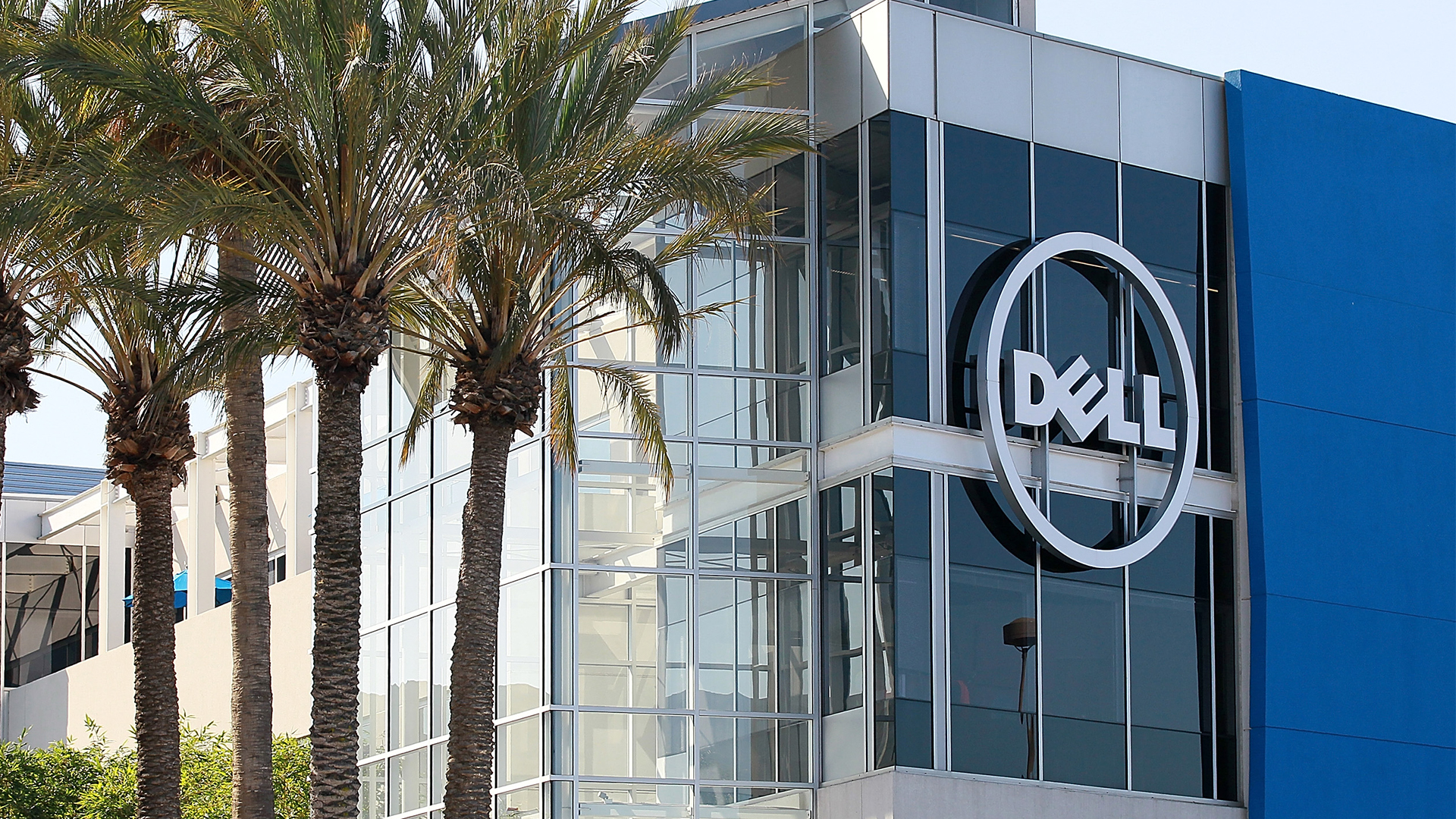Dell Technologies told remote workers they’ll miss out on promotions unless they return to the office – staff said they’re willing to take the risk
Attempts by Dell Technologies to drive employees back into the office show no sign of being effective as flexible work remains popular across the board


Sign up today and you will receive a free copy of our Future Focus 2025 report - the leading guidance on AI, cybersecurity and other IT challenges as per 700+ senior executives
You are now subscribed
Your newsletter sign-up was successful
Like a host of industry counterparts, Dell Technologies has been struggling to get employees back into the office despite company-wide RTO mandates – and they still can’t accept that workers just don’t want to return to the grind of the daily commute.
Many employees are pushing back on RTO mandates regardless of the pressure placed on them by the firm, according to internal data seen by Business Insider.
Earlier this year, Dell Technologies introduced new policies requiring hybrid employees to track their office attendance and ensure they entered a physical office space 39 days a quarter, or roughly three days a week.
Those who classified themselves as remote workers had to agree that they were no longer eligible for job promotions or role changes under the mandate.
According to this new data, close to 50% of full-time Dell workers in the US have opted to remain fully remote despite these measures, highlighting the appetite for alternative working arrangements.
Speaking to Business Insider, several staff expressed a range of reasons for their decisions to continue their positions remotely in spite of Dell’s RTO demands.
"I benefited a lot from being WFH since 2020 and had a lot of personal growth. I'm not willing to give that up if I don't have to," one employee said.
Sign up today and you will receive a free copy of our Future Focus 2025 report - the leading guidance on AI, cybersecurity and other IT challenges as per 700+ senior executives
"With the salary that we are receiving, a return to the office would leave a huge hole in our budget," another employee said in reference to food and commuting costs.
Dell Technologies isn’t alone in its failure to push workers back into the office en masse, though, according to Molly Johnson-Jones, CEO of Flexa. Across a range of industries globally, employees have come to value hybrid and remote working compared to the pre-pandemic 9-5 commute and grind.
"Employees’ stance on strict ‘RTO’ mandates and set office-working days is clear - and not only amongst Dell employees,” she told ITPro.
Johnson-Jones cited Flexa’s own data from earlier this year which showed half of all workers were seeking remote roles and nearly half (42%) of workers were searching for “remote-first” working opportunities, “whereby regular office attendance is optional and teams meet up every month, for example”.
Other research from Scalable, also conducted this year, showed 35% of workers “resent” mandated office attendance.
Hybrid and remote working policies come with a range of benefits for many employees, from financial savings to lifestyle flexibility, and such benefits appear tempting enough to put the kibosh on Dell’s RTO plans.
"There are any number of different reasons why staff might need or prefer to work remotely,” Johnson-Jones said.
“Some people simply find that they work better at home. This includes many neurodivergent workers, who can struggle with in-person interactions and overstimulating office environments,” she added.
“Others rely on remote work to fit their jobs around their caring responsibilities, or health needs".
Dell isn't the only firm experiencing RTO pushback
RTO mandates have become a flashpoint in the global tech industry over the last two years, pitting employees against senior management on a number of occasions.
Several major industry players have tried - and failed - to push workers back into the office. The approach taken by firms to tempt staff back has varied wildly, with some opting for a hardline approach and others pushing added incentives.
Last year, Google was heavily criticized over plans to record office attendance rates for use in performance reviews, for example. The move was described by critics as a clear attempt to strongarm workers back to the office.
The firm then offered workers a ‘discounted rate’ on hotel rooms at corporate campuses in a bid to tempt some back to the office.
RELATED WEBINAR

Fundamentally, RTO mandates don’t have a great effect and do little to persuade staff to get back to the office. If anything, these policies could cause companies to lose vital staff.
Research from Gartner earlier this year found that one-third of executives plan to ditch their current roles over office attendance policies.
The survey, which fielded responses from 3,500 employees, also found that 19% of workers in non-executive roles would leave their organization due to RTO rules.

George Fitzmaurice is a former Staff Writer at ITPro and ChannelPro, with a particular interest in AI regulation, data legislation, and market development. After graduating from the University of Oxford with a degree in English Language and Literature, he undertook an internship at the New Statesman before starting at ITPro. Outside of the office, George is both an aspiring musician and an avid reader.
-
 ITPro Best of Show NAB 2026 awards now open for entries
ITPro Best of Show NAB 2026 awards now open for entriesThe awards are a fantastic opportunity for companies to stand out at one of the industry's most attended shows
-
 Mistral CEO Arthur Mensch thinks 50% of SaaS solutions could be supplanted by AI
Mistral CEO Arthur Mensch thinks 50% of SaaS solutions could be supplanted by AINews Mensch’s comments come amidst rising concerns about the impact of AI on traditional software
-
 Dell Technologies eyes fresh market opportunities with 2026 partner program
Dell Technologies eyes fresh market opportunities with 2026 partner programNews The tech giant has updated its channel program with new incentives and initiatives to drive partner growth
-
 Computacenter enters the fray against Broadcom in Tesco's VMware lawsuit
Computacenter enters the fray against Broadcom in Tesco's VMware lawsuitNews The IT reseller has added its own claim against Broadcom in VMware case brought by Tesco
-
 Who is John Roese?
Who is John Roese?Dell's CTO and Chief AI Officer John Roese brings pragmatism to AI
-
 Meta layoffs hit staff at WhatsApp, Instagram, and Reality Labs divisions
Meta layoffs hit staff at WhatsApp, Instagram, and Reality Labs divisionsNews The 'year of efficiency' for Mark Zuckerberg continues as Meta layoffs affect staff in key business units
-
 Business execs just said the quiet part out loud on RTO mandates — A quarter admit forcing staff back into the office was meant to make them quit
Business execs just said the quiet part out loud on RTO mandates — A quarter admit forcing staff back into the office was meant to make them quitNews Companies know staff don't want to go back to the office, and that may be part of their plan with RTO mandates
-
 Amazon workers aren’t happy with the company’s controversial RTO scheme – and they’re making their voices heard
Amazon workers aren’t happy with the company’s controversial RTO scheme – and they’re making their voices heardNews An internal staff survey at Amazon shows many workers are unhappy about the prospect of a full return to the office
-
 Predicts 2024: Sustainability reshapes IT sourcing and procurement
Predicts 2024: Sustainability reshapes IT sourcing and procurementwhitepaper Take the following actions to realize environmental sustainability
-
 Advance sustainability and energy efficiency in the era of GenAI
Advance sustainability and energy efficiency in the era of GenAIwhitepaper Take a future-ready approach with Dell Technologies and Intel